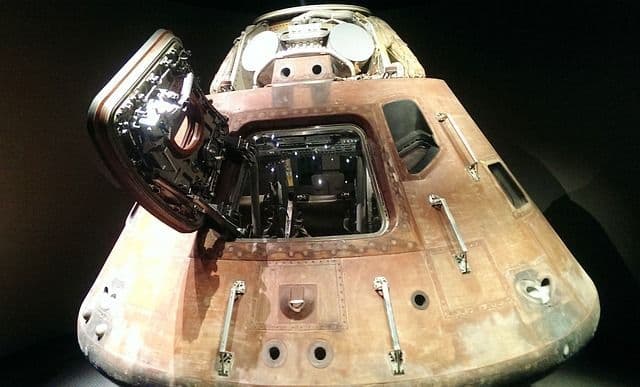
Discover the Future of Space Industry
Space Industry
The space industry encompasses a wide range of space exploration, research, and commercialization activities. It includes government agencies like NASA and the European Space Agency and private companies like SpaceX and Blue Origin. The industry involves the development of rockets, satellites, and other spacecraft, as well as deploying these assets for various purposes, such as communication, Earth observation, and scientific exploration. The space industry also plays a crucial role in advancing technologies and pushing the boundaries of human knowledge. As the demand for space-based services grows, the industry is expected to continue to expand and evolve, creating new opportunities for innovation and investment.
Science research and the space industry: how do they work together?
The space industry plays a crucial role in advancing scientific research. It provides scientists access to technologies and resources unavailable on Earth, such as telescopes and satellites, which allow them to gather information and data about the universe. Additionally, space exploration and research have led to the development of new materials, technologies, and methods with practical applications on Earth, such as solar power and GPS.
The space industry also contributes to our understanding of Earth by monitoring the planet's weather patterns, natural disasters, and climate change. Furthermore, the study of space has helped scientists answer fundamental questions about the origins of the universe and the existence of life beyond Earth. Overall, the space industry's contributions to scientific research are invaluable and will continue to shape our understanding of the universe and our world.
What companies are leading the space industry?
Space exploration has come a long way in recent years, with numerous companies leading the charge in the industry.
Here are some of the top players:
1. SpaceX
Founded by Elon Musk, SpaceX is one of the most well-known space companies in the world. With its reusable rockets and ambitious plans for colonizing Mars, SpaceX has made significant strides in reducing the cost of spaceflight and pushing the boundaries of what's possible.
2. Blue Origin
Another company founded by a billionaire entrepreneur is headed by Amazon's Jeff Bezos. Blue Origin is focused on developing reusable rockets for space tourism and scientific missions to make space travel accessible to more people.
3. Virgin Galactic
Richard Branson's Virgin Galactic also targets the space tourism market, with plans to offer suborbital flights to paying customers. While the company has faced setbacks and delays, it remains a key player in the industry.
4. Boeing
As one of the largest aerospace companies in the world, Boeing has a long history in the space industry. The company has developed numerous spacecraft and rockets over the years and is currently working on the Space Launch System (SLS) for NASA.
5. Lockheed Martin
Another major aerospace company, Lockheed Martin, has a strong presence in the defense and space sectors. The company is responsible for developing several important space systems, including the Hubble Space Telescope and the Mars Odyssey spacecraft.
These companies are just a few players in the rapidly evolving space industry. With new technologies and innovations constantly emerging, it's an exciting time to be involved in space exploration.
What is the future of the space industry?
The future of the space industry is incredibly promising. With technological advancements and increased investment, the space industry is poised for significant growth and development. In the coming years, we can expect to see a significant increase in space warzone, with private companies leading the way in developing reusable spacecraft and creating opportunities for space tourism.
Developing advanced propulsion systems will allow faster and more efficient travel, making exploring deeper into our solar system and beyond possible. Further, we can expect an increased collaboration between governments and private companies and increased investment in space-based infrastructure, such as satellites for communication and remote sensing. Overall, the future of the space industry looks bright, and it will continue to play a crucial role in shaping our understanding of the universe and advancing our technology and capabilities.
How do I get involved in the space industry?
Getting involved in the space industry can be an exciting and rewarding experience. To start, it is essential to pursue education and training in fields such as engineering, science, or mathematics, as these are typically the most sought-after skills in the industry. Look for internships or entry-level positions at space exploration or satellite technology companies to gain practical experience and make valuable connections.
Joining professional organizations, attending industry events, and networking with professionals can also help find job opportunities and stay current on industry developments. It's important to note that the space industry is highly competitive, so building a strong resume and continually improving skills is crucial. With dedication and hard work, anyone can make a meaningful contribution to the space industry and be part of shaping the future of space exploration.
Final Thoughts
The space industry refers to the various commercial and government entities involved in space exploration, research, and technology development activities.
The industry is growing rapidly, with private companies such as SpaceX, Blue Origin, and Virgin Galactic playing an increasingly important role alongside traditional government agencies such as NASA and ESA.
Space tourism is an emerging industry sector, with several companies planning to offer suborbital flights to paying customers soon.
The development of reusable rockets and spacecraft has greatly reduced the cost of spaceflight and enabled new opportunities for scientific research, satellite deployment, and other applications.
The industry also includes developing and manufacturing satellites for communication, navigation, earth observation, and other purposes.
Collaboration between public and private entities is becoming increasingly common, with government agencies partnering with private companies to develop new technologies and capabilities.
The industry faces various challenges, including the risks and costs associated with space exploration, regulatory hurdles, and concerns about space debris and sustainability.
Appreciate the creator